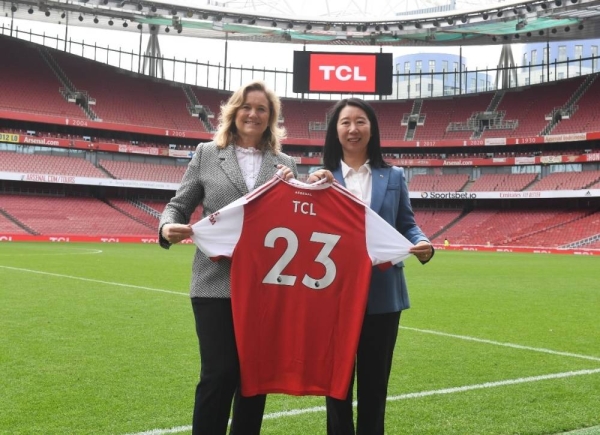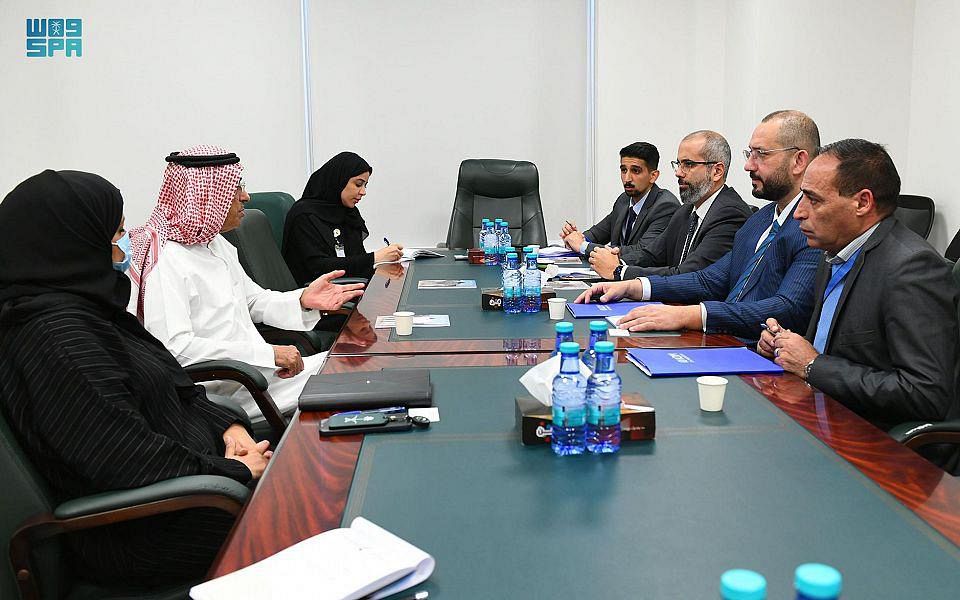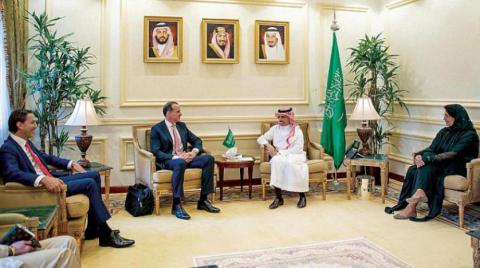
Mismatch between available expertise and in-demand roles limits job creation in Arab region
Technological progress seen as the biggest contributor to skills gap in most industrial sectors
DUBAI: At a time of intense debate worldwide about the social impact of automation and global integration, many companies are facing a problem of a very different kind. The gap between the skills of available workers and those demanded by the market is hitting their bottom line.
The “knowledge and skills gap” is a growing challenge in almost every part of the world. For business communities and recruitment companies in the Middle East, it is a sad fact of life.
Research has shown that technological progress is the largest contributor to the skills gap in most industrial sectors. Studies also show that the root of the mismatch between available expertise and in-demand jobs lies in education systems that have not kept pace with the times.
A recent report by Korn Ferry, the US management consulting firm, predicts that the demand for skilled workers will outstrip supply, resulting in a global talent shortage of more than 85.2 million people by 2030.
The skills gap could get a lot worse before it gets better, if at all. A report by the International Labor Organization (ILO) says that the global youth unemployment rate has risen between 1991 (9.3 percent) and 2018 (12.8 percent). In the Middle East, the rate has stood stubbornly at 26.1 percent — double that of the global average.
According to Nancy W. Gleason, director of the Hilary Ballon Center for Excellence in Teaching and Learning at NYU Abu Dhabi, “there is a gap between academia and the job market” in the Arab region.
“The fourth industrial revolution is pushing a skill shift in the workplace that higher education has not entirely responded to yet,” she told Arab News.
Consequently, “disruptive technologies such as additive manufacturing, artificial intelligence and blockchain” continue to collectively change what is needed in the workplace, resulting in an incompatibility between the skills demanded and those supplied.
Gleason says that while hard skills remain in high demand across the Arab region and the world, soft skills such as “reasoning, problem-solving, and ideation” are growing in importance in the workplace.
She said that non-technical skills are “habits of mind” — the tools needed to enable employees to adjust to new forms of work and to overcome any complications that could arise with the job.
“Firms are starting to hire based on an individual’s ability to learn,” Gleason told Arab News.
A startup called Qureos is aiming to bridge the gulf between the academic world and the corporate workplace in the Arab region by helping young men and women to develop “job-relevant skills.”
The startup provides students with a platform that allows them to build an “experiential portfolio” and engage in projects with mentorship from industry experts.
According to Mehrad Yaghmai, chief operating officer of Qureos, research of the market revealed a rise in the requirement for “data science and analytical skills,” a consistent demand for software-development skills in engineering, and a focus on machine learning in most industries.
“Beyond technical skills, there is a need for critical thinking, data-computer literacy and the skill to adapt and learn on the job,” he said.
Qureos, which currently has 2,000 registered students, hopes to do its bit for the region by partnering with 50 companies by the summer of 2020.
The talent gap blighting the job prospects of university graduates in the Middle East was underscored by the findings of the World Economic Forum’s latest Global Competitiveness Report.
One executive opinion survey question asked: “In your country, to what extent do university graduates possess the skills needed by businesses?” The answers ranged between 1-7, with 7 indicating “to a great extent.”
Among countries in the Middle East, the UAE and Qatar reported 5.3, followed by Lebanon at 5.2, Saudi Arabia at 5.1 and Oman at 4.8.
The Global Competitiveness Report rankings, which measures the overall national competitiveness of 141 economies, placed the UAE (25) ahead of Qatar (29), Saudi Arabia (36), Bahrain (45) and Kuwait (46.)
“The global context of these numbers is important to consider,” said Gleason, adding that education is only one piece of the puzzle.
“As automation outmodes pattern-based hard skills, the ability to adapt and learn new things will be a valued skill in and of itself.”
She says educational institutions need to go beyond transferring content knowledge and help students to articulate cognitive skills.
Work is “task-based and fluid” and “learning in the classroom should be too, regardless of what content you choose to focus on in your education.”
For their part, higher education institutions need to do more to develop “future-ready graduates,” Gleason told Arab News, adding that they need to “emphasize the competencies that are demonstrated though pre-professional and technical educational degrees.”
According to Gleason, graduates can apply what they learned to other contexts through a mix of interdisciplinary education, implementation of internship schemes and experimental learning.
“It is when the content knowledge is applied that real learning happens,” she told Arab News.
“Many education instructions across the MENA region are acting to create opportunities in this space.”
Mohammad Ayish, head of the department of mass communication at the American University of Sharjah (AUS), does not mince words when discussing “the gap between academia and the market.”
It is a “huge one,” he told Arab News, adding that universities have underestimated the reality of a fast-changing job market.
“Their program learning outcomes have little relevance for emerging market needs,” he said.
“When their graduates start hunting for jobs, they find themselves too detached from the competencies required in the workplace.”
That said, changes in university curricula are being made in response to demands by higher-education regulators, according to Ayish.
The majority of universities in the Middle East are “highly keen” on equipping students with the appropriate knowledge for meeting shifting market demands, he said.
However, some institutions continue to follow traditional approaches, Ayish said, although with accelerating transitions in the market, they will have no choice but to adapt.
In an era when technology reigns supreme, he said, universities should “promote values of entrepreneurship and innovation and bolster enduring ties with market players to ensure their students find relevance in the workplace.”
Ayish’s argument, however, begs the question of whether higher education institutions are capable of addressing the “knowledge and skills gap” challenge on their own.
According to NYU’s Gleason, coordination among government, industry and education establishments is essential for “impactful development of employees of all ages.”
For instance, computer science and mathematics are among the fields that struggle to attract specialists who possess the needed skills in combination with “emotional intelligence and creativity.”
At the same time, she says, new areas of employment such as space-related industries are hard pressed to find employees with computation thinking skills and digital literacy.
Gleason says that educational institutions should focus on assembling a faculty capable of understanding the market’s major shifts and implementing non-traditional methods of teaching.












